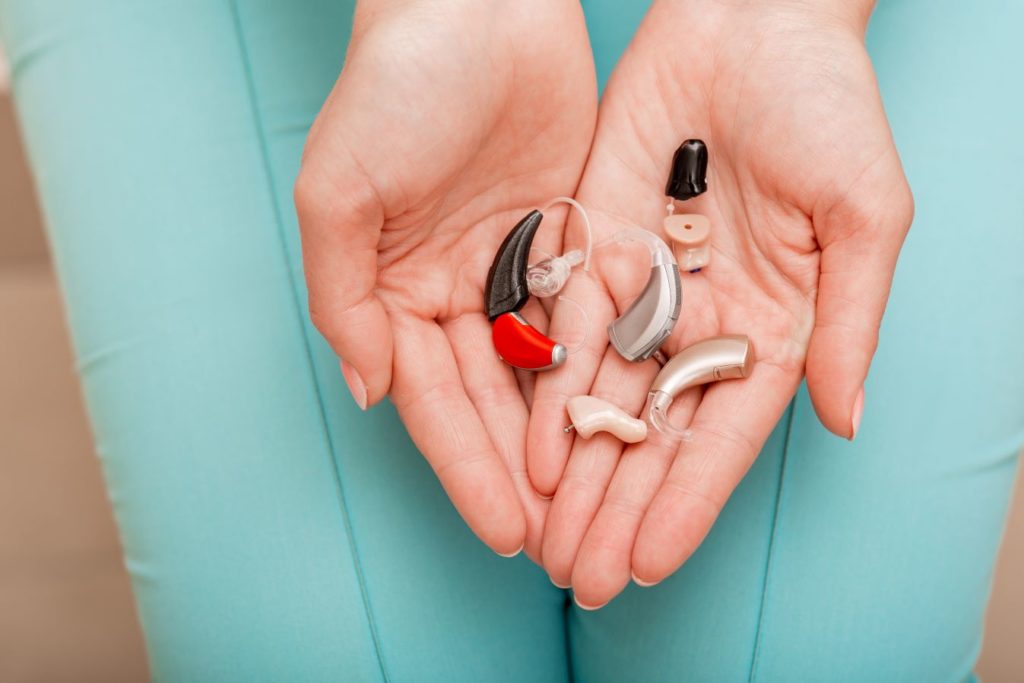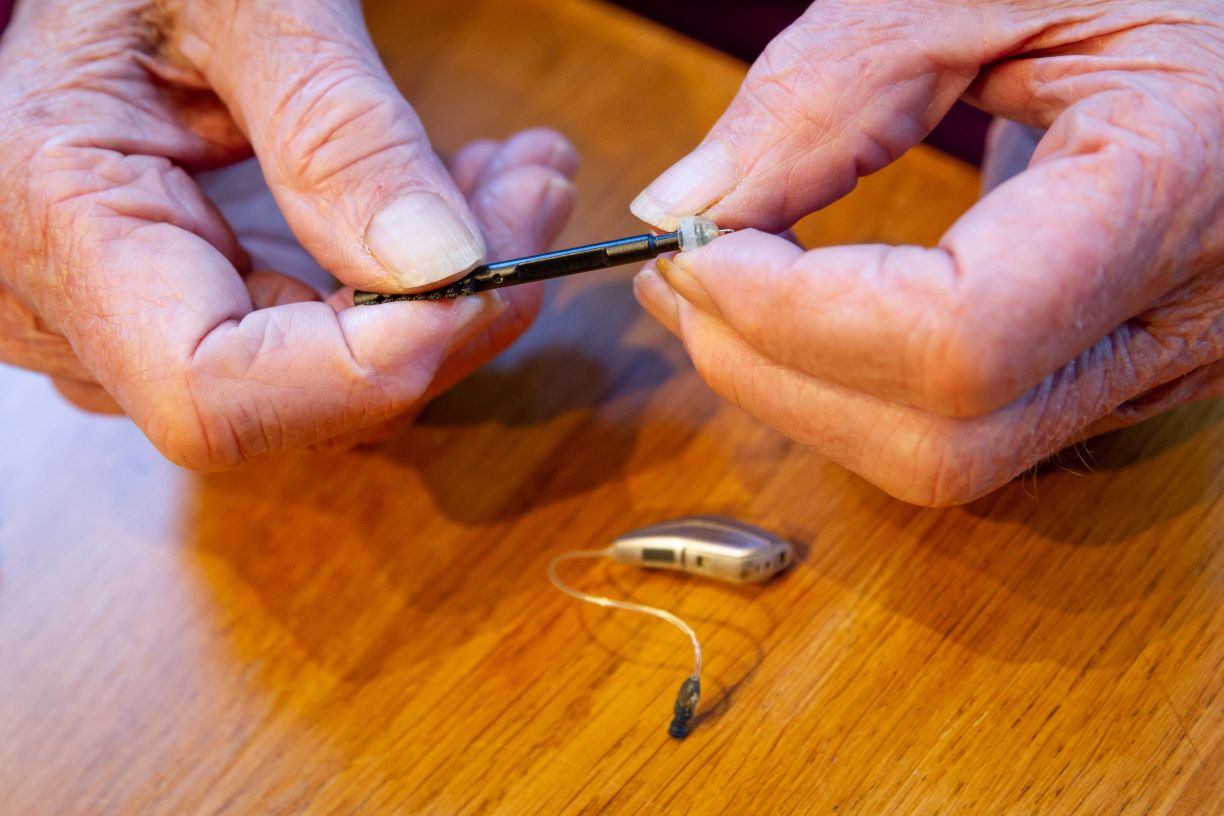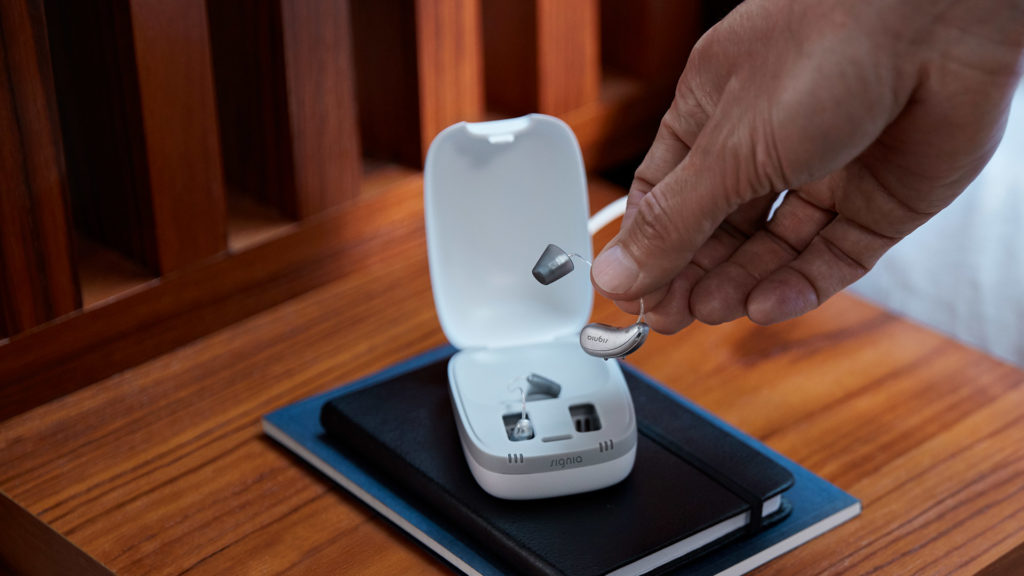Hearing aids are a big investment – and a necessary one for those with hearing loss! Like many significant investments, you may have a lot of questions about the product you’re purchasing. Which is the right model for me? What types of hearing aids are there? How long do hearing aids last?
We’ve answered all these questions, and shared our top tips for prolonging the life of your hearing aids at home.
What are the different types of hearing aids?
There’s a whole myriad of hearing devices to choose from when it comes to selecting the perfect hearing aid for you. From different hearing aid fits and styles, different technical features and different brands and appearances.
When choosing the right hearing aid for your unique needs, you’ll want to consider your level of hearing loss, your lifestyle and your budget. However, you don’t need to do this alone – our expert audiologists will help you choose the right hearing aid and consider all these factors and more.
There are 6 different types of hearing aids. These are:
- Behind the ear hearing aids or BTE
- In the ear hearing aids or ITE
- Receiver in canal hearing aids or RIC
- In the canal hearing aids or ITC
- Completely in the canal hearing aids or CIC
- Invisible in canal hearing aids or IIC
There are also spectacle hearing aids or hearing aid glasses available on the market.

Why do different hearing aids have different lifetimes?
How long your hearing aids will last depend on a number of factors, from the device build and quality, how well they’re maintained and how much wear and tear they experience. On average, hearing aids can last between three to seven years, even longer for many people.
Many of the newer models offer a longer lifespan in comparison to the older models due to their advanced features, better design and modern manufacturing processes, however no two hearing aids will last the same amount of time.
This is why proper care and maintenance of your hearing aid is important to ensure you get the most out of your hearing aid device for as long as possible.
How you can prolong the lifetime of your hearing aid
As we’ve mentioned above, proper maintenance is a great way to extend the lifetime of your hearing aids. There are simple but effective habits you can introduce into your routines to ensure the longevity of your hearing device.
Clean your hearing aids frequently
When hearing aids go long periods of time without being cleaned, their ability to amplify sound and support your hearing reduces. During normal everyday wear, your hearing aids are exposed to sweat, skin oils and cells and external environmental factors such as dust and moisture.
This is normal and with regular cleaning, your hearing aids will continue to work even with these factors at play. Here at Hearing Therapy, we recommend cleaning your hearing aids each night when you go to bed as this allows you to get into a good routine and also gives your hearing devices time to air dry before use.
How you clean your hearing aids will depend on the hearing aid type you own and it’s best to invest in a hearing aid cleaning kit which includes all the tools you need to safely clean your devices. Learn how to clean your hearing aids at home in our previous blog.

Use a dryer
Why dry your hearing aids? Although hearing aids these days usually have an IP68 rating applied to them that implies they are dust and ‘immersion’ proof there are exposed components that can still be degraded by moisture. These are the speaker, the microphone, the battery drawer and the switches or buttons on the back of the aid.
Dryers can substantially reduce the impact of moisture on your hearing aids are simple to use. There are two types, a box type that you place your hearing aids in along with a tablet of anhydrous crystals that absorb any moisture from the aids, and a more sophisticated electronic one that relies on a combination of UV light for sterilisation and constant fans to apply the drying. Ask your audiologist about which type is suitable for your hearing devices.
Protect your hearing aids
As we said above, external factors such as the environment, dust and debris can cause your hearing aids to degrade over time. Damp and dusty environments can reduce your hearing aids ability to work but there are protective measures that can be taken.
If you’re temporarily exposed to either dust or moisture, for example during a visit to a tropical location or whilst doing DIY, using waterproof protective ear covers can reduce the amount of debris or dampness your hearing aid comes into contact with. They’re disposable, affordable and easily accessible.
For those who are exposed to the elements more frequently, talk to your hearing care specialist for advice on protective methods and to book regular professional cleans.
Store your hearing aids when not in use
It’s far too easy to take your hearing aids out and leave them on the side. But it’s easy to knock them off your bedside table, lose them down the side of the sofa or misplace them. How you store them can keep them safe from losing parts and batteries, unnecessary damage and losing them altogether!
When you take your hearing aids out, always store them away in a case or sleeve to ensure they’re protected at all times. This can help extend the life of the individual hearing aid components and save money on replacement parts.
Before putting your hearing aids away, removing the disposable batteries or opening the battery case can also extend the life of the device. There are also USB-powered dehumidifier cases that can withdraw moisture away from the device and prolong its life further.

Frequent maintenance of your hearing aids
One sure way to ensure the longevity of your hearing aid devices is to book regular professional cleans and hearing aid maintenance appointments. During these cleans, they will be inspected for faulty or damaged parts and replacements can be arranged for them.
Common components that need replacing frequently include the wax guards, earmold tubing and dome earpiece tips. During routine maintenance appointments, we’ll replace these parts if they need to be replaced.
If we notice more significant damage or components that aren’t functioning as they should, we can arrange for your hearing aids to go for repair or replacement – whichever is more appropriate.
Book an appointment with a hearing specialist
Do you suspect you’re experiencing a loss of hearing? Book an appointment in one of our clinics for a hearing test. We also offer home visits on request for hearing assessments, hearing aid fittings and tinnitus treatments.
Our friendly and expert hearing aid specialists can help with the set-up, fitting and maintenance of your hearing aids and answer any questions you have.
